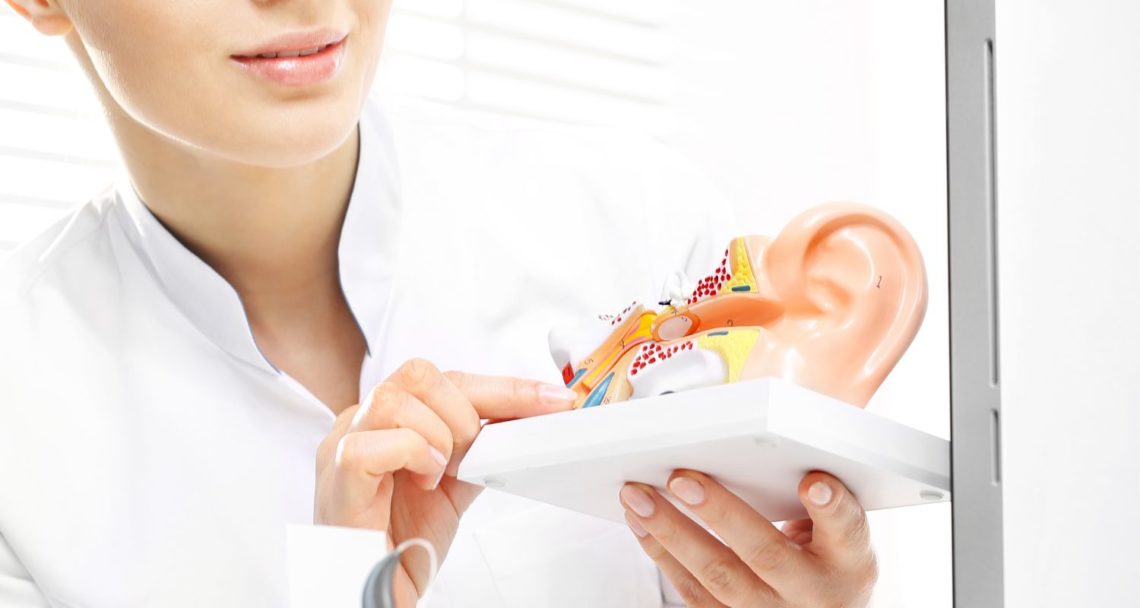Did you know that nearly 1 in 6 people have some degree of hearing loss? Impacting over 48 million people, hearing loss is one of the most common health conditions people experience today. Impaired hearing affects people of all ages and can be caused by a variety of factors – loud noise, aging, injury etc. This medical condition reduces a person’s capacity to hear and process sound which strains communication. Symptoms can take a toll on relationships, social engagement, and overall health in numerous ways. Fortunately, there are safety measures you can practice to reduce your risk of developing hearing loss. Prioritzing your hearing heatlh can sifnciatnly enhance your wellness and quality of life.
What Causes Hearing Loss?
There are numerous factors that can cause hearing loss. A few of the most common causes include:
- Aging: the risk of hearing loss increases with age. Age related hearing loss, also known as presbycusis, can be caused by: a cumulative impact of noise on the auditory system as well as existing medical conditions which older adults experience disproportionately and are linked to hearing loss.
- Loud noise: one time or consistent exposure to loud noise can damage the hair cells in the inner ear. Loud noise can desensitize these sensory cells which disrupts their ability to send auditory information to the brain.
- Medical conditions: extensive research shows that several medical conditions increase the risk of hearing loss. This includes diabetes, hypertension, osteoporosis, and cardiovascular disease.
Additional causes include inner ear disorders, head injuries, autoimmune conditions, and chronic ear infections.
Tips to Prevent Hearing Loss & Reduce Its Impact
There are effective ways you can protect your hearing health. If you have hearing loss, these strategies can also help reduce its impact. A few tips include:
- Wear hearing protection: an effective way to protect your ears from loud noise exposure is by wearing hearing protection. There are different types that you are already likely familiar with – earbuds, headphones, earmuffs etc. This protective wear offers a physical barrier for the ears, reducing the amount of loud noise that is absorbed. You can even have hearing protection custom made which provides maximum protection and support. Be sure to carry this with you so you can easily grab them and put them on when navigating environments that are noisier.
- Reduce noise exposure: because loud noise is such a common cause of hearing loss, reducing your exposure is an important preventative measure. There are numerous ways you can do this including: avoiding noisy settings and especially during peak hours, opting for quieter places, taking listening breaks throughout the day, maintaining lower volume settings on electronic devices, avoiding traffic and construction sites by taking alternate routes, driving with the windows rolled up etc.
- Practice healthy habits: research shows that specific lifestyle factors can contribute to the development of hearing loss or worsen hearing loss symptoms. This includes smoking which studies have shown increases the risk of hearing loss. Substances found in cigarettes can affect blood flow throughout the body including the inner ear where sound waves are processed. Reducing or completely eliminating smoking can improve hearing health and prevent hearing loss. Additionally, finding healthy ways to process stress can alleviate hearing loss symptoms like tinnitus – a buzzing and ringing like noise in the ears. Engaging in de-stressing activities like taking walks, exercise, yoga etc. are useful ways to manage stress and alleviate symptoms.
- Have hearing assessed regularly: another great tip is to have your hearing health assessed regularly. Hearing evaluations are performed by hearing healthcare specialists and involve a painless process that measures hearing abilities in both ears. This noninvasive process identifies any hearing loss as well as the degree of impairment present. Once your hearing needs are established, your hearing healthcare provider is able to tailor treatment to meet those needs. Even if you don’t have hearing loss, integrating a hearing test in annual health check-ups is a good way to track and monitor your hearing health.
These safety measures are simple ways you can prioritize your hearing health and prevent the development of hearing loss. Contact us today to learn more and to schedule an appointment for a hearing consultation.

